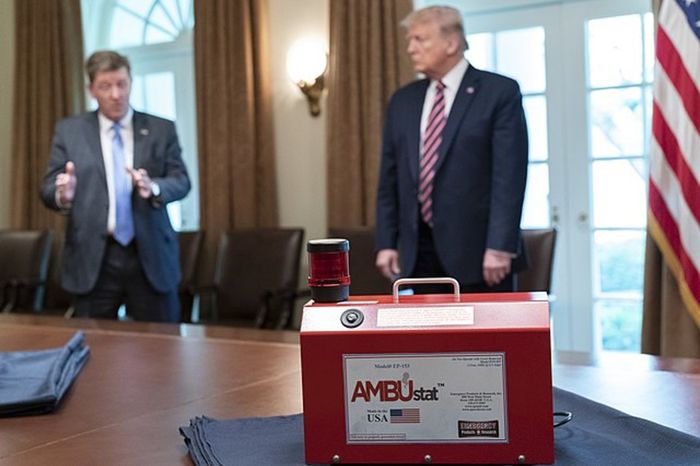Forget horses, sperm is the new gambling opportunity
Laura Verdina discusses how a recent ‘Sperm Race’ could change the way we understand male fertility

In April 2025, teen millionaire Eric Zhu organised the world’s first ‘Sperm Race’, with the hopes of “turning health into a sport”. The race was held like any other large sports game: livestreamed from an arena, complete with a commentator, ring girls, and even a performance from rapper Ty Dolla $ign.
The event boasted over 100,000 views on its Youtube livestream, as well as 1,000 live spectators, and was picked up by news outlets such as The Telegraph, Daily Mail, TMZ, and Vanity Fair. Viewers watched as two American university students’ sperm cells raced against each other on a 3D-rendered track, eager to see whose swimmers would cross the finish line first. Zhu aims to use sperm motility (i.e. how fast and agile your sperm is) as a proxy for fertility, meaning the Sperm Race would directly compare men on the health of their sperm. He received over a million dollars from wealthy investors to fund the project.
“Declining male fertility is a global issue”
Racing sperm may sound absurd, but, for Zhu, it proves a means of highlighting declining male fertility. He was inspired by a 2017 study which depicted a decline in sperm count in North America, Europe, Australia and New Zealand. This was later affirmed by a 2022 follow-up meta-analysis, which found similar results worldwide.
Clearly, declining male fertility is a global issue, one happening at an accelerating rate. Although exact causes for the decline are unclear, several studies suggest this decline in sperm count is due to a range of factors, including diet and environmental toxins.
Additionally, male fertility is increasingly being accepted as a biomarker for a man’s overall health. This means that more data is being released which suggests associations between a man’s reproductive health and his susceptibility to metabolic diseases and cancer. Considering how sperm health is affected by environmental factors, it is not surprising that poor fertility could suggest susceptibility to other diseases too.
In the project’s ‘manifesto’, Zhu states: “It’s about turning health into a competition. It’s about making male fertility something people actually want to talk about, track, and improve.”
“hiding Andrew Tate style rhetoric behind the guise of promoting a health concern?”
By hosting the Sperm Race as any other major sports game, Zhu directly appeals to a younger male audience – the familiar nature of the event destigmatises the topic of male fertility and equally prompts young men to care about their own health. By bringing wider attention to declining male fertility through a dramatic race where sperm cells go head-to-head, young men are incentivised into caring about the health of their sperm. Considering over $300,000 was wagered on the results of the live race, Zhu has made it so that it pays to be healthy.
However, this marketing tactic carries a sinister streak. Within the first two minutes of the livestream, commentator Eric Ou states the sperm racers have “committed their lives to being healthy, having a strict diet, and again, being fertile”. Could the Sperm Race be feeding the hypermasculine culture that has enraptured countless young men, by hiding the same old Andrew Tate style rhetoric behind the guise of bringing awareness to a genuine health concern? Is it right to put young men against each other on the basis of their gametes, let alone in front of the watching eyes of thousands of viewers, or could this open the door to shaming and ridicule of those whose sperm do not measure up to their competitors?
Before the race, Tristan Mykel, who would go on to win, said of his competitor: “my testosterone is higher […] my training is better – he’s not prepared”. The execution of the entire event raises questions as to whether this race is really for a good cause, or just an excuse to keep perpetuating stereotypical ideals of the ‘perfect man’.
So, could gamifying wellness be the way forward in tackling issues in young people’s health? Does providing young people with extrinsic motivation help them care about their health? The massive success of Eric Zhu’s Sperm Race suggests introducing competition and incentive may be the way forward in ensuring young people stay active and healthy – or, it could be fuelling a culture of rivalry in male healthcare. Either way, maybe next year, the Grand National will look a little different.
 News / Colleges charge different rents for the same Castle Street accommodation2 March 2026
News / Colleges charge different rents for the same Castle Street accommodation2 March 2026 News / News in Brief: waterworks, wine woes, and workplace wins 1 March 2026
News / News in Brief: waterworks, wine woes, and workplace wins 1 March 2026 News / Climate activists protest for ‘ethical careers policy’1 March 2026
News / Climate activists protest for ‘ethical careers policy’1 March 2026 News / Private school teacher who lied about Cambridge degree barred from teaching27 February 2026
News / Private school teacher who lied about Cambridge degree barred from teaching27 February 2026 News / Angela Merkel among Cambridge honorary degree nominees27 February 2026
News / Angela Merkel among Cambridge honorary degree nominees27 February 2026









